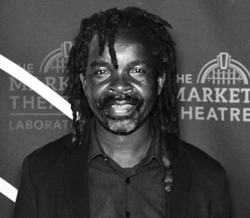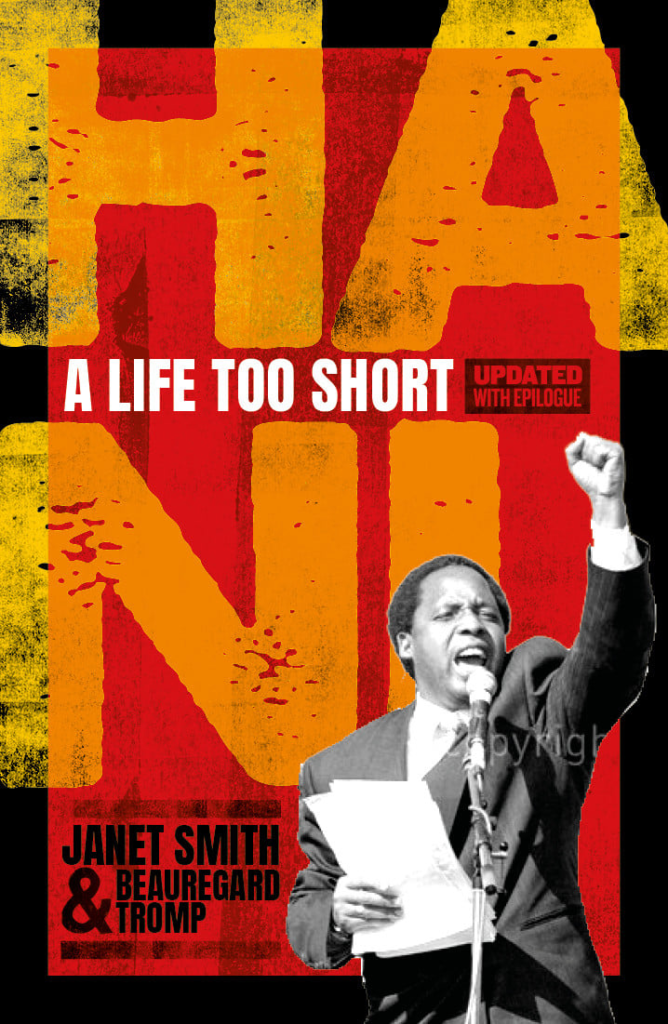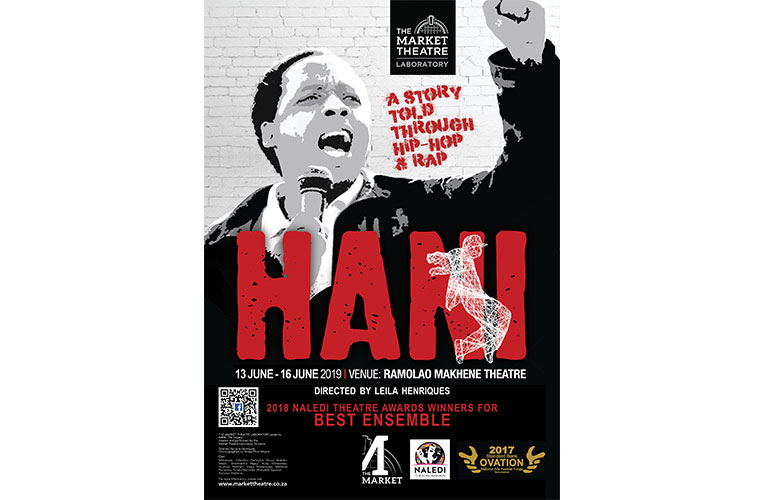Reminiscing about Chris Hani through artistic perspectives as 30th anniversary of his assassination approaches

By Edward Tsumele, CITYLIFE/ARTS Editor
When the revolutionary died in April 1993, the event drove the country to a knife edge. Several voices called for the suspension of the then ongoing talks between the African National Congress and the National Party Government. Others demanded that the talks be scrapped completely. Nelson Mandela who a year later became the first President of Democratic South Africa after the watershed elections of 1994, calmed the waters down by going on national TV to speak sense to an enraged population. He demonstrated his statesmanship right there under an extremely difficult, dangerous and tense situation. Anger was simmering in the population, both black and white, threatening to explode into full scale public violence over the assassination of the people’s hero.
As a young man living in Hillbrow I watched the event on TV in horror and wondered was going to happen next. Like many others, I was nervous and angry. But because at the time, I was yearning for an opportunity to write, in fact write for anybody who would give me an ear, I vented the anger by putting pen to paper. I took a chance and approached a UK based publication with the story of the assassination of an icon, a freedom fighter and an influential player in the then prevailing political field in South Africa. I did what you never do in journalism, and that is to send an unsolicited story to an editor being completely an unknown ‘writer.’ Worse still writing about an important political event involving the violent assassination of a popular political figure that in many ways had the potential to change the trajectory of a country at that critical moment in time.
The gamble by a 23 year old inexperienced writer who sent that story written on a rickety type writer to London by post worked though. I guess the London publication could not just turn down a pitch from a then unknown journalist wannabe. The must have been reached due to the enormity of the event, and the person involved. Personally at that very moment, I felt like the centre was not holding anymore. Anything could happen to derail the path towards democracy.
It is these emotions, the fear and a little understanding of what could easily go wrong in the country, all of whose elements I put in that story of the assassination of Chris Hani that must have persuaded the editors of New African to accept my pitch. Not only did they accept it, but it was a cover story for that edition. I was hilarious though sad that it took the assassination of a hero of the people for me to be published by an international publication. This was at a time when the local media had spurned my pitches.
And of course as a young writer getting his first cheque for writing, I was excited and partied with friends in the then vibrant Hillbrow. That is once, I received the cheque by post, got it cleared from Pounds into the local current the Rand, in my first ever bank account with FNB. But what really made me feel confident about my writing was the fact that I was able to publish an article about the assassination of an influential political figure, a freedom fighter, whose life was taken away violently, in an international publication. I knew that that violent event was going to be an important historical event for years to come. And yes indeed, n my gut feeling was spot on.

Hani’s story is an ongoing story till this day. More so because he never witnessed the freedom that came to South Africa 12 months later. But also because today, with the situation of the country uncertain once again due to a number of challenges, such as the corruption of the new elite, violent crime and the energy crisis among other challenges, ordinary people and the intelligentsia are asking the big question of where would Chris Hani fit in these difficult circumstances. Was he going to be part of the few increasingly wealthy, politically connected black elites? Or was he going to still be the champion of the poor and the downtrodden in the face of damaging corruption, such as State Capture, engineered and designed by some former freedom fighters now in power? Even more intriguing, was he going to be part of those that are corrupt?
These are questions seizing many as the anniversary of Hani’s assassination approaches 30 years later. These critical questions will remain with us for a long come to come. We will probably not ever agree with one another on where Hani would fit in the current political matrix and complexions. That is also OK. What we can do though is to think, and argue among ourselves at dinner parties, pubs, through stage productions and the writing of books about his life and times, as well as his thinking in order to try and position him in the context a post-apartheid South Africa as it exists right now.
Our writers fortunately have not been lazy in calibrating the life and times of Chris Hani as books have been written and so have stage plays. These are efforts worthy noting.
For example young playwrights at the Market Theatre Laboratory, with the help of their mentors, a few years ago, created a musical play titled Hani: The Legacy. This musical is about the life and times of Chris Hani. The play was critically acclaimed, winning a number of theatre accolades .It won the Standard Bank Gold Ovation Award at the National Arts Festival in Makhanda among other noteworthy acknowledgements. The musical play was inspired by the hit American musical Hamilton. In this play, Hani’s story is told from the youth’s perspectives, all of them born after 1993, the so called born-frees. It is told through contemporary song forms of Hip Hop, Rap, and ballad.
Hani’s own daughter, Lindiwe Hani together with journalist, author and publisher Melinda Ferguson in 2017 penned a memoir on how the assassination of her struggle icon father sent her on a downward spiral into cocaine and alcohol addiction. Being Chris Hani’s Daughter‚ lays bare some of the skeletons in the Hani family. Lindiwe at the time of her father’s violent death was aged 12.
Journalists Janet Smith and Beauregard Tromp have also come up with a book about the late Hani, which is critically acclaimed.
‘This is an excellent portrayal of the Chris I knew. Not one word of exaggeration, so large was Chris. His contribution to our freedom is inestimable,” writes Mavuso Msimang, ANC veteran and former member of the military high command of uMkhonto we Sizwe about this book.
“In the 30th anniversary year of his murder by right-wing fanatics, this updated version of the seminal biography of Hani re-evaluates his legacy and traces his life from childhood in rural Transkei to the crisis in the ANC camps in the 1980s and the perilous last 36 months he spent back home rallying for South Africa’s freedom.
Drawing on interviews with those who knew him, this vividly written book provides a detailed account of the life of a hero of South Africa’s liberation, who was both an intellectual and a fighter,” the publisher Jonathan Ball says about this latest edition.
About the authors
Janet Smith is a former newspaper editor and the author of Patrice Motsepe: An Appetite for Disruption. She is also a co-author of The Coming Revolution: Julius Malema and the Fight for Economic Freedom and The Black Consciousness Reader, among other titles.
Award-winning journalist Beauregard Tromp is the Africa editor of the Organized Crime and Corruption Reporting Project. He was deputy editor at the Mail & Guardian and Africa correspondent for The Star.
.The issue of the assassination of Chris has always been an emotive issue, which became yet again a subject in the public lips late last year, when the Highest Court on the land, the Constitutional Court in November 2022, ordered the Justice Minister Ronald Lamola to release Hani’s murderer out of jail on parole. He had been serving a life sentence for the crime.










